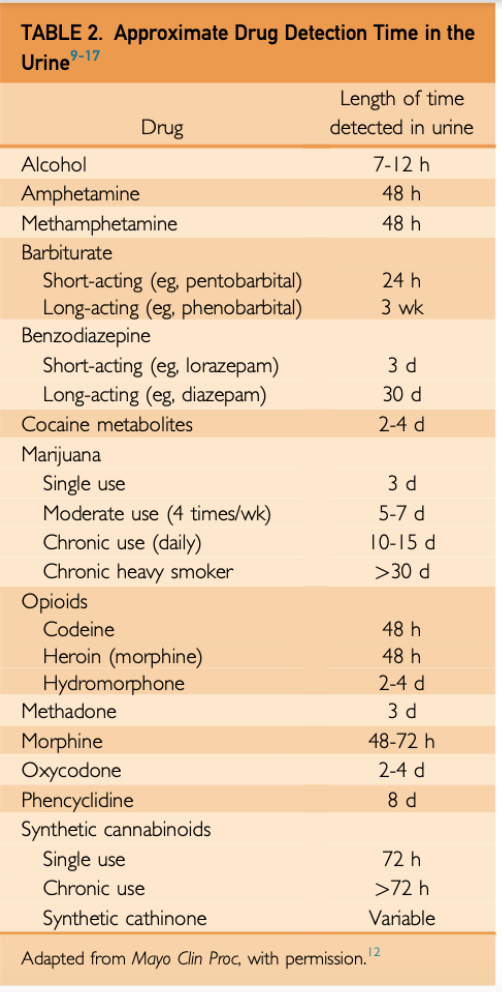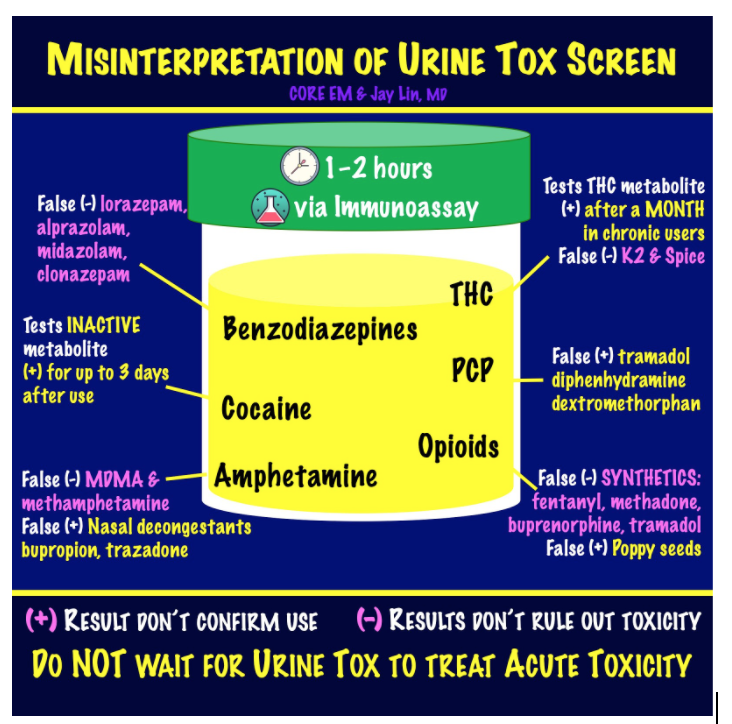Show Notes


Special Thanks To:
Dr. Philip DiSalvo, MD
Ronald O. Perelman Department of Emergency Medicine at NYU Langone Health, NYC Health + Hospitals/ Bellevue
New York City Poison Control Center
References:
Christian MR, et al. Do rapid comprehensive urine drug screens change clinical management in children? Clin Toxicol (Phila). 2017;57:977-980.
Grunbaum AM, Rainey PM (2019). Chapter 7: Laboratory Principles. In Goldfrank’s toxicologic emergencies. New York, NY: McGraw-Hill Education.
Moeller K, Kissack J, Atayee R, Lee K. Clinical Interpretation of Urine Drug Tests: What Clinicians Need to Know About Urine Drug Screens. Mayo Clinic Proceedings Review. Volume 92, Issue 5, p774-796, May 1, 2017. https://www.mayoclinicproceedings.org/article/S0025-6196(16)30825-4/fulltext
Table 2: Approximate Drug Detection Time in the Urine
Table 4: Summary of Agents Contributing to Results by Immunoassay

 Core EM - Emergency Medicine Podcast
Core EM - Emergency Medicine Podcast